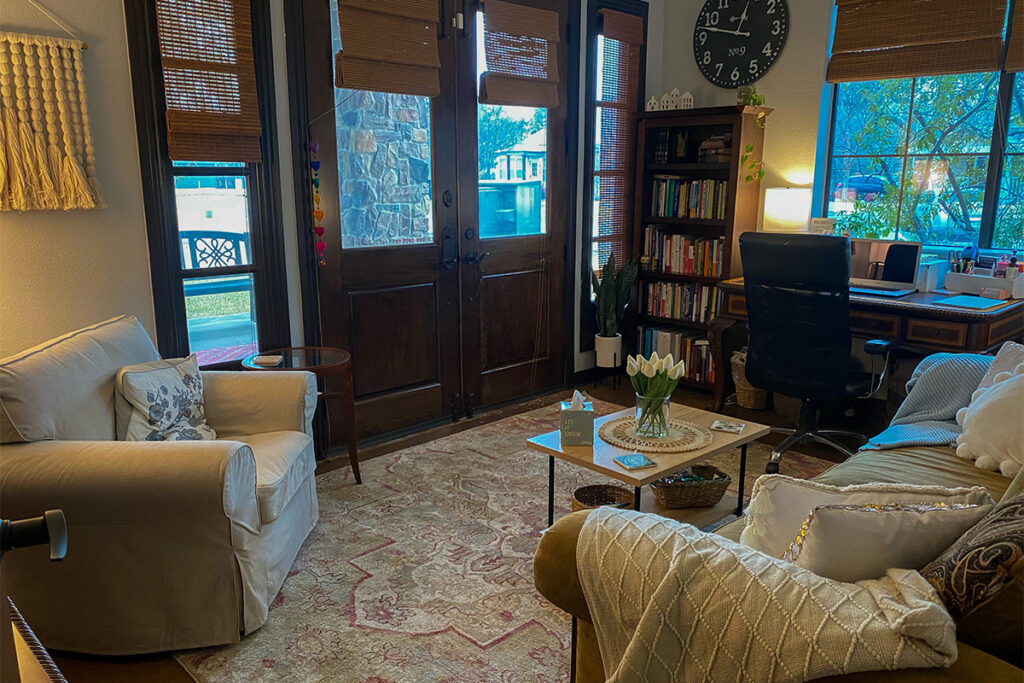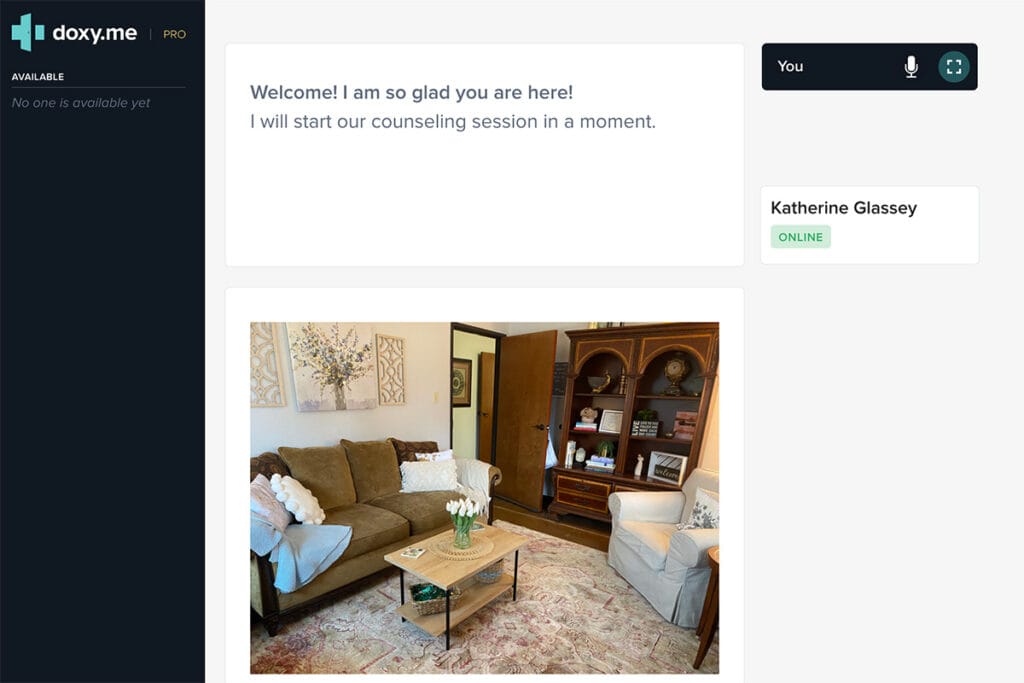What to expect in counseling


What’s a counseling session like?
I desire to create a safe environment that is specific to your needs as a client. In our first session, whether it’s in my office or virtual, my goal is to understand what brought you to counseling. We will discuss your goals for counseling, and my hope is that you leave our first session together feeling hopeful, understood, and encouraged. Please do not feel as though you have to share your entire history with me in our first session. I understand that trust takes time, and I will be happy to answer any questions you have about the counseling process and hopefully ease any anxiety you might have about starting counseling.
The initial assessment session is 60 minutes in length. All remaining counseling sessions are 50 minutes in length.
My counseling approach
In my counseling practice, I take a person-centered approach, which means I prioritize building a strong, collaborative relationship with you. I believe that therapy works best when we are partners in the healing process, and my role is to create a safe, non-judgmental space where you can explore your thoughts, feelings, and experiences.
I draw from a variety of therapeutic methods to support you in reaching your goals and overcoming challenges. These include teaching, coaching, modeling, encouraging, and gently challenging you in ways that feel both empowering and compassionate. The techniques I use are flexible and tailored to your unique needs.
Additionally, I specialize in two trauma-informed therapeutic approaches: Eye Movement Desensitization and Reprocessing (EMDR) and Internal Family Systems (IFS).
- EMDR Therapy: EMDR is a well-established, evidence-based therapy that can be particularly helpful for individuals dealing with trauma, anxiety, and distressing memories. It works by stimulating both sides of the brain to reprocess unprocessed memories, reducing their emotional charge and helping you develop healthier coping mechanisms. Through EMDR, clients can process past traumatic experiences, gain greater emotional regulation, and move forward with greater peace and resilience. It’s a powerful tool for healing that can provide lasting relief for those who have experienced trauma.
- Internal Family Systems (IFS): IFS is an integrative therapy that helps individuals understand and heal their internal “parts”—different aspects of themselves that may be in conflict. These parts often include wounded or protective parts of us that, while they may have once served a purpose, can now be barriers to emotional well-being. IFS focuses on creating harmony between these parts, allowing clients to access their Self, which is grounded, compassionate, and capable of healing. Through IFS, we can work together to heal past wounds, resolve internal conflicts, and help you become more whole and integrated.
In addition to these therapeutic modalities, I also enjoy using the Enneagram (a personality typing system) to help you better understand your core motivations, behaviors, and challenges. The Enneagram can be a helpful tool for personal growth, offering insights into how you respond to stress, relate to others, and navigate your emotional landscape. It’s a valuable tool for increasing self-awareness and building healthier relationships.
If you’re interested in learning more about the Enneagram and how it can be helpful in growth and understanding, visit The Enneagram Institute.